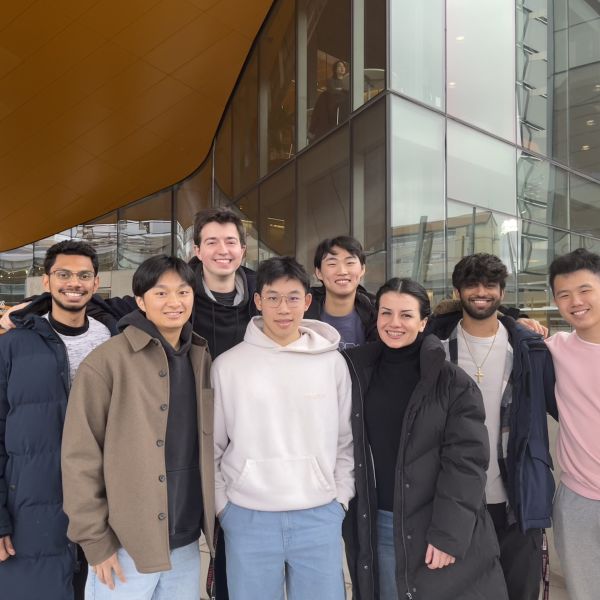May 13, 2024
By Louis DiPietro
If the use of drones becomes as prevalent as Mehrnaz Sabet believes, our skies are about to get much more congested, and machine learning could be the answer for safe and autonomous aerial traffic flow.
To help on this front, NASA has awarded a multidisciplinary team led by Sabet, a doctoral student in the field of information science, an $80,000 grant to develop new coordination and communication models for drones that will someday deliver goods and even transport people.
As part of the grant and in coordination with Cornell, the team has launched a crowdfunding page to help raise additional funds to support the project.
“Traditional air-traffic control won’t work when there are going to be many different drones in the air,” said Sabet, whose research explores collaborative, autonomous drones. “We’re advancing algorithms that enable drones, whether they are piloted by humans or artificial intelligence, to coordinate with each other and navigate the airspace safely and autonomously.”
Sabet is the principal investigator on the project, “Learning Cooperative Policies for Adaptive Human-Drone Teaming in Shared Airspace,” and leads a team of seven Cornell undergraduate and Master of Engineering students from the departments of computer science and information science in the Cornell Ann S. Bowers College of Computing and Information Science and electrical and computer engineering in Cornell Engineering.
Sanjiban Choudhury, assistant professor of computer science, and Susan Fussell, professor in the departments of information science and communication, will serve as faculty mentors.
The grant comes from NASA’s University Student Research Challenge program, which awards students whose research projects tackle the biggest technical challenges in aviation.
“This opportunity is a great example of how impactful collaborations can be fueled by industry or new programs from leading organizations like NASA that support innovative research projects from students for real-world applications,” said Sabet, who handpicked her teammates, all of which are involved with CUAir, Cornell Cup Robotics, or Cornell Mars Rover.
Along with Sabet, student team members are: Aaron Babu ‘26, Marcus Lee ‘26, Joshua Park ‘26, Francis Pham ‘25, Owen Sorber M.Eng ‘24, Roopak Srinivasan M.Eng ‘24, and Austin Zhao ’26.
To learn more about this project, visit the project website.
Louis DiPietro is a writer for the Cornell Ann S. Bowers College of Computing and Information Science



